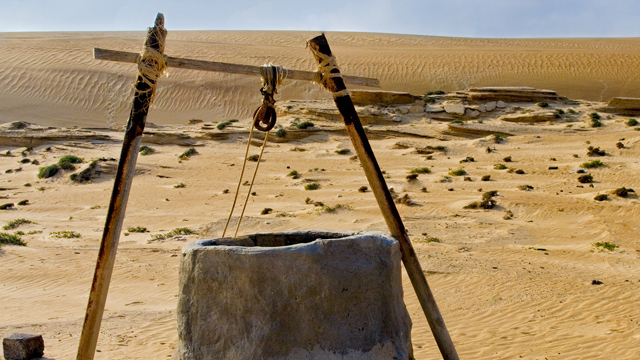
Are you comfortable asking for help?
Dr. Brené Brown, author of the book, The Gifts of Imperfection, posed this question to an audience. About one third of the room raised their hand. She followed up with another question, “How many of you would rather give help than ask for help?” which received a very different response; almost every member of the audience raised their hand.
The difficulty we have asking for help in general points to a larger issue. Brown has spent years studying human behavior and has come to a startling conclusion: self-judgment makes us feel uncomfortable seeking assistance. “When you cannot ask for help without self-judgment, you are never really offering help without judgment,” she says, “because you have attached judgment to asking for help.” From a kabbalistic point of view, we understand how important it is to share and help others. When we do, is it possible that we are simultaneously judging those in need? Brown suggests that it is, unless we learn to freely ask for help without judging ourselves.
Why do we judge ourselves? While we accept that it is necessary for us to share Light through acts of kindness and charity, we sometimes prefer to feel that we are above assistance, that we don’t need anyone’s help and can do just fine on our own. This fallacy is a detriment to our spiritual growth, for it inhibits our ability to connect to others and connect to the Light of the Creator.
On the other hand, some of us feel that we deserve to be recognized or rewarded for our acts of sharing. “This undercuts the power of your action to connect you with the Creator, who is never searching for a reward,” says Michael Berg in The Secret. “Moreover, Kabbalah teaches that we acquire the limited happiness of physical rewards at the expense of true joy. This is precisely the reason that material gain never brings lasting satisfaction…So an act of sharing that contains a hidden agenda is not really a step toward the ultimate goal.”
How can we perform acts of kindness, charity, and sharing in a way that allows us to move closer to this ultimate goal of long lasting fulfillment? We do this when we allow sharing to be a constant flow of give and take, when our Desire to Receive for the Sake of Sharing is greater than our Desire to Receive for ourselves. We do this when we leap at the opportunity to help others without judgment, not because we will receive anything in return, but because our acts of sharing bring more Light into the world.
The biblical chapter, Chayei Sarah, demonstrates one such selfless act of sharing performed by a young girl. Abraham decides that his son, Isaac, needs a wife, so he sends his servant, Eliezer, to find one. Eliezer packs up a small caravan of ten camels with fine goods from his master and begins his journey.
He arrives at a watering hole where the women of the village come to fill their jugs. With so many women approaching the water, he declares how he will choose the perfect match for Isaac, “Let it come to pass that the maiden to whom I say, ‘Let down your pitcher so that I may drink,’ and responds with, ‘Drink and I will give your camels water, too,’ be the one appointed for Isaac.”
Before he even finishes speaking, Rebecca approaches the watering hole with a pitcher upon her shoulder. Eliezer hurries to her and implores her, “Let me please drink a little water from your pitcher,” to which she quickly offers him water. When he quenches his thirst, she says, “Also for your camels will I draw water, until they have finished drinking.” She then draws more water and makes sure that each of the camels are satisfied. She doesn’t hesitate to help Eliezer. Furthermore, when he and his flock are satiated, she extends her home as lodging for Abraham’s traveling servant.
In Secrets of the Bible, Michael Berg pinpoints exactly what makes Rebecca’s actions so extraordinary, “Most of us share, but how many of us share with the consciousness of a servant? I think if we are truly honest with ourselves, our answer would be almost never.” Like a servant, Rebecca leaps at the opportunity to help. Eliezer knows she is a fitting partner for Isaac when she shows her willingness to be a servant through her sharing.
Helping others while silently judging their need or while hoping to receive something in return disconnects us from the Light of the Creator. Kabbalists have known this all along; when we help others selflessly and without judgment we strengthen our connection to the Light and grow spiritually. When we realize this and let a desire to share Light be the impetus for our actions, we are able to truly connect to others and in turn, connect to the Light of the Creator.
